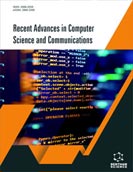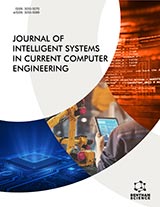Aims & Scope:
Current Machine Learning publishes
critical and authoritative reviews/mini-reviews, original research and
methodology articles, and thematic issues in areas of machine learning.
The journal serves as an advanced forum for innovative studies and major
trends of theoretical, methodological, and practical aspects of machine
learning. Our aim is to provide a comprehensive and reliable source of
information on the current advances and future perspectives from diverse
disciplines that intersect with machine learning. Areas of interest cover, but are not limited to:
• Active Learning
• Adversarial Machine Learning
• Anomaly Detection
• Applications in Finance
• Applications in Healthcare
• Applications in Robotics
• AutoML (Automated Machine Learning)
• Bayesian Methods in Machine Learning
• Computational Learning Theory
• Computer Vision
• Data Preprocessing and Augmentation
• Deep Learning
• Dimensionality Reduction
• Ensemble Methods
• Ethics and Fairness in AI
• Evolutionary Algorithms
• Feature Selection and Extraction
• Federated Learning
• Game Theory for Machine Learning
• Generative Adversarial Networks
• Generative AI
• Graph-based Learning
• Interpretability and Explainability
• Large Language Models
• Meta-learning
• Model Evaluation and Validation
• Multi-task Learning
• Natural Language Processing
• Neural Architecture Search
• Object Detection
• Online Learning
• Optimization Techniques
• Quantum Machine Learning
• Recommender Systems
• Reinforcement Learning
• Retrieval-Augmented Generation
• Robustness and Adversarial Machine Learning
• Semi-parametric and Non-parametric Methods
• Semi-supervised Learning
• Speech Recognition
• Statistical Learning Theory
• Supervised Learning
• Time Series Analysis
• Transfer Learning
• Unsupervised Learning
• Adversarial Machine Learning
• Anomaly Detection
• Applications in Finance
• Applications in Healthcare
• Applications in Robotics
• AutoML (Automated Machine Learning)
• Bayesian Methods in Machine Learning
• Computational Learning Theory
• Computer Vision
• Data Preprocessing and Augmentation
• Deep Learning
• Dimensionality Reduction
• Ensemble Methods
• Ethics and Fairness in AI
• Evolutionary Algorithms
• Feature Selection and Extraction
• Federated Learning
• Game Theory for Machine Learning
• Generative Adversarial Networks
• Generative AI
• Graph-based Learning
• Interpretability and Explainability
• Large Language Models
• Meta-learning
• Model Evaluation and Validation
• Multi-task Learning
• Natural Language Processing
• Neural Architecture Search
• Object Detection
• Online Learning
• Optimization Techniques
• Quantum Machine Learning
• Recommender Systems
• Reinforcement Learning
• Retrieval-Augmented Generation
• Robustness and Adversarial Machine Learning
• Semi-parametric and Non-parametric Methods
• Semi-supervised Learning
• Speech Recognition
• Statistical Learning Theory
• Supervised Learning
• Time Series Analysis
• Transfer Learning
• Unsupervised Learning




















